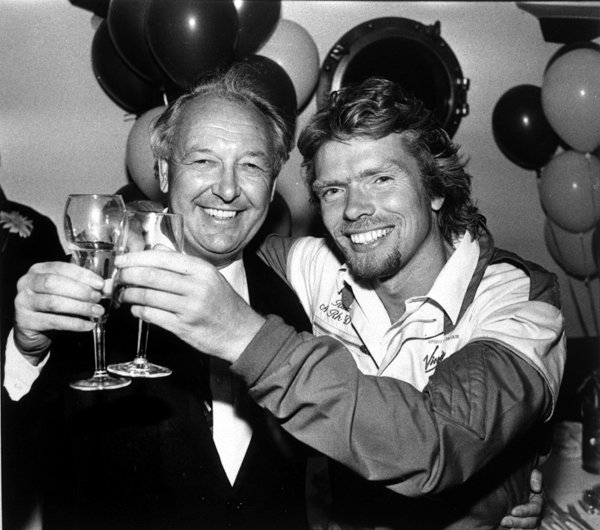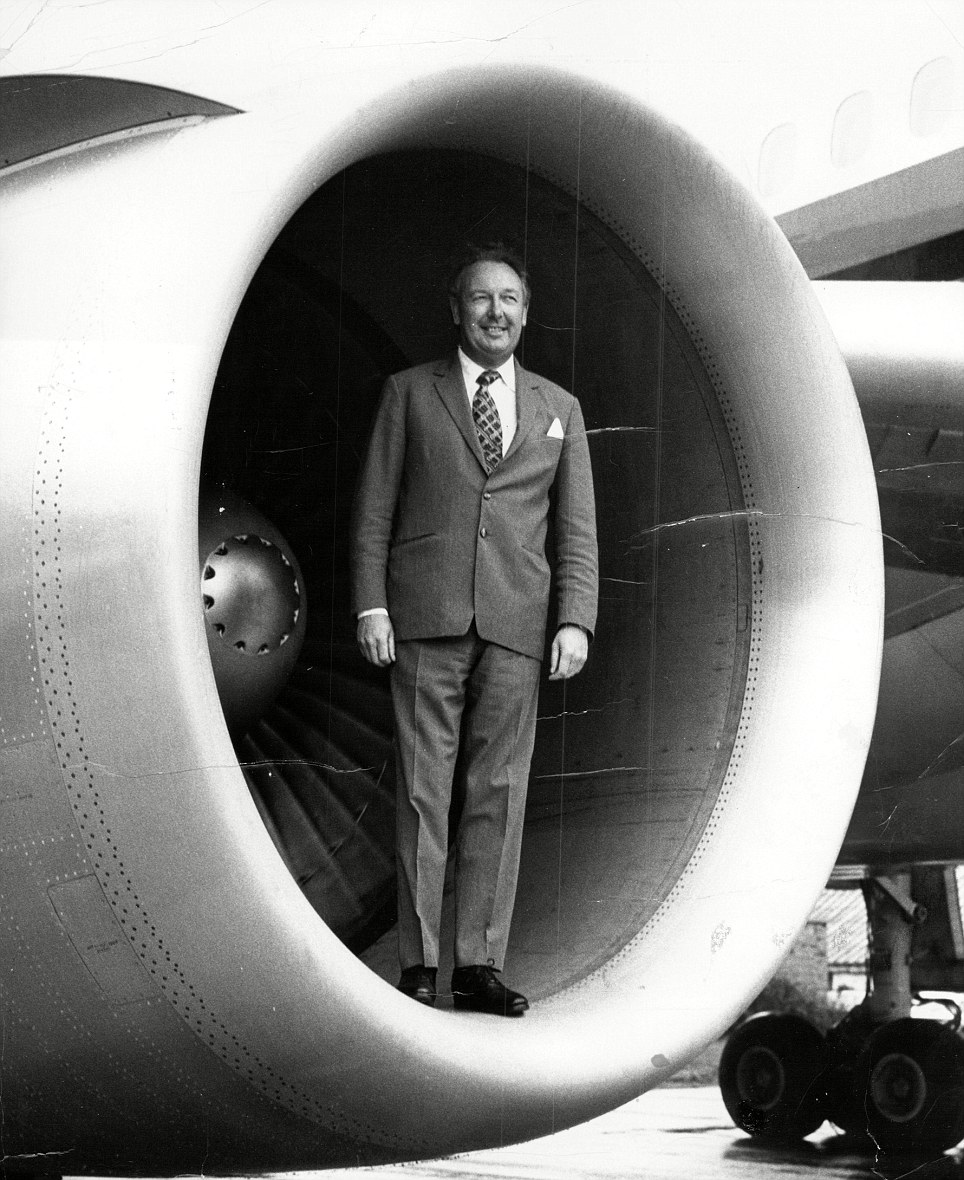 In his just completed Reddit Ask Me Anything, Sir Richard Branson had the following exchange:
In his just completed Reddit Ask Me Anything, Sir Richard Branson had the following exchange:
Question:
Who did you look up to when you were growing up?
Richard Branson:
I looked up to Sir Freddie Laker, the pioneer of cheap air travel who was driven out of business by British Airways. It was he who told me to “Sue the bastards!” when BA tried to do the same to us. We took his advice and succeeded. He also suggested I use myself to put Virgin on the map, which led to ballooning and boating adventures.•
Excerpts follow from two pieces about the late British aviation entrepreneur.
Before his actual obituary in 2006, Laker, who helped democratize plane travel and opened the heavens to the masses, was “laid to rest” once before in the early ’80s, when the wings came off his business model. The opening of Terry Smith’s 1982 People article about Laker Airways when the Skytrain was falling:
If any doubt remained that Sir Freddie Laker is a knight of the people, the events of this month have dispelled it. The bankruptcy of Laker Airways, which in 1977 pioneered cut-rate transatlantic air travel, struck Laker’s countrymen like the demise of an old friend. Within hours of the announcement a group of private citizens set up Freddie’s Friendly Fund, quixotically dedicated to saving Skytrain. In the first 24 hours they received $1 million in pledges—and by last week the tally was up to $5.5 million. In addition, the rock group Police promised to turn over the receipts of a Los Angeles concert totaling $185,000. From two schoolboys who donated 16 pence at a Laker airport counter to the group of Liverpool businessmen who offered $1 million, grateful travelers have rallied to Sir Freddie’s side. Says Laker stewardess Lisa Holden, who has spent her recent days gathering signatures on a petition of support: “If public opinion was anything to go by, we’d never go out of business.”
Unfortunately, Laker’s $388 million debt is more than even such extraordinary goodwill can erase. A British bank hoping to raise a last-minute $64.7 million fund to keep Laker flying admitted defeat, and an offer by the airline’s 2,500 employees to take a huge pay cut was similarly futile. For Laker staffers who lobbied vociferously at 10 Downing Street last week, their plea for government assistance was largely a symbolic last stand. “I’ll go under with Laker,” said Capt. Terry Fenton. “I won’t find another job as a pilot, I won’t find any other job. There are no jobs. I’ll have to sell my house, just the same as 90 percent of the people here today.”
Laker was a victim of problems that have thrown other airlines into a tail-spin—skyrocketing fuel prices and decreased passenger traffic. When Pan Am (which lost $348 million in 1981) slashed its New York-London fare last November, Sir Freddie’s prospects darkened. The decline of the British pound also sapped his resources. Currently trying to sell the insolvent British Airways, Prime Minister Margaret Thatcher’s government announced that it could not intervene on Laker’s behalf.•
Laker lived high and fell far, though for a while he used aggressive pricing and sharp advertising to become the center of commercial aviation, making relatively cheap transatlantic fares a reality. From his 2006 New York Times obituary penned by Jeff Bailey:
Laker Airways began service in 1977 and upset the staid world of trans-Atlantic travel then dominated by British Airways, Pan American World Airways and Trans World Airlines, sharply cutting fares and greatly expanding the number of people flying across the ocean.
“Traditional airlines were flying half-empty 747’s between Europe and the U.S.,” said Robert L. Crandall, former chief executive of American Airlines. Then along came Sir Freddie, charging about $240 for a round trip, and his planes were full.
Mr. Crandall recalled going to London in the early 1980’s to meet with him, and being picked up at the airport by Sir Freddie in a Jaguar convertible and driven along country lanes at ’70 to 80 miles an hour. Sir Freddie then took Mr. Crandall and his wife to a country pub for lunch.
The established carriers eventually matched Laker’s low fares. Passengers drifted away from Laker, and the company, having grown too quickly by most accounts, could not meet its debt obligations.
Laker’s liquidators later sued competing airlines, claiming a conspiracy to drive the upstart out of business. The litigation was settled, and Sir Freddie received $8 million for his Laker stock, though he lost many of his personal assets.
While it lasted, with Sir Freddie appearing in cheeky advertisements (‘Fly me,’ he said), Laker Airways was the talk of the aviation industry.•

